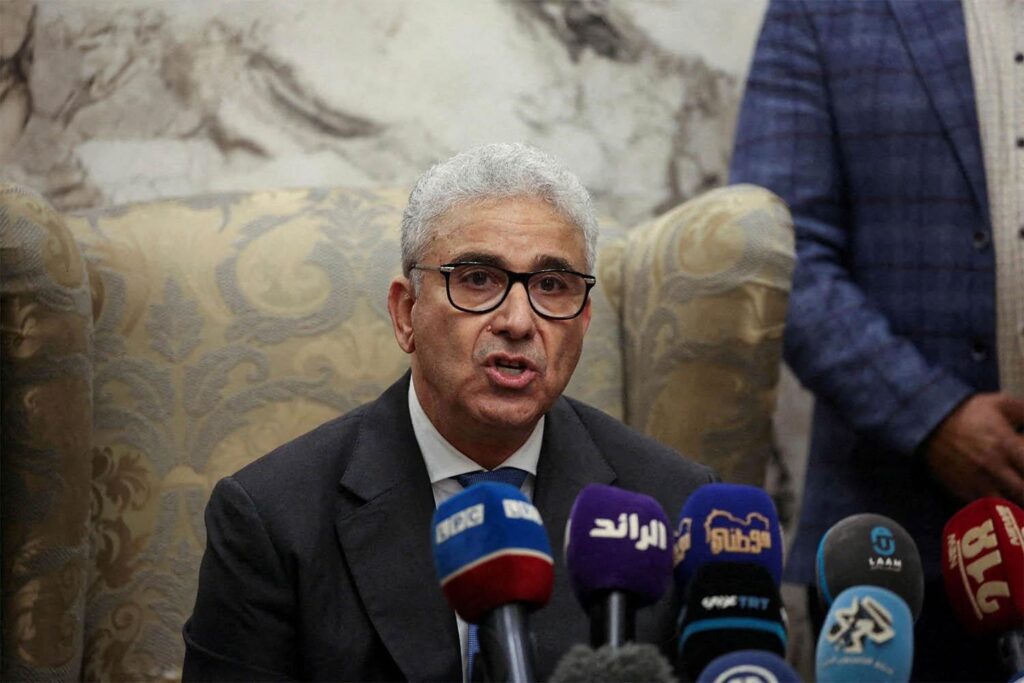The Libyan Parliament-designate Prime Minister, Fathi Bashagha, has called on the Scottish authorities to “redouble efforts” in the search for billions of dollars stolen from the African country, according to The Times.
Almost a decade has passed since Britain’s Crown Office agreed to help Libya trace vast sums of national wealth destined for hospitals, education and housing that went missing in bogus construction contracts which included deals with Scottish companies in the 1990s.
An investigation by Police Scotland — understood to be the largest of its kind — established several years ago that more than 20 Scottish limited partnerships (SLPs) were used as vehicles to launder money from Libya.
Detectives also found evidence to suggest that dozens of properties across Scotland and England, including a luxury townhouse in Chelsea, West London, were bought with laundered cash, The Times claimed.
Bashagha’s rival, Abdul Hamid Dbeibeh, is allegedly embroiled in the fraud conspiracy along side his cousin Ali Dbeibeh. Both were involved in state-owned development contractor LIDCO, which was part of Libya’s Organization for the Development of Administrative Centres (ODAC’s) contracting system during the reign of Muammar Gaddafi’s regime.
ODAC and the public contracting process were part of a broader system of corruption, which was used to siphon off Libya’s vast oil wealth during Gaddafi’s four decades in power. A 2014 report by anti-corruption watchdog, Transparency International found that his regime likely stole around $61 billion.
In February 2022, an investigation was conducted by the Organized Crime and Corruption Reporting Project (OCCRP) and its partners, on the prominent Dbeibeh family in Libya. It drew on leaked data from inside Swiss banking giant, Credit Suisse, and discovered previously unknown accounts belonging to Ali Dbeibeh.
“Billions of dollars given out through public contracts had gone missing. Investigators said the money appeared to have been stolen by the former Head of ODAC, Ali Ibrahim Dbeibeh, and his family,” the OCCRP said.
It noted that these clients, all of whom were later implicated in corruption investigations, were involved at all levels of the public construction sector. This ranged from the awarding of contracts, to the ownership of companies that benefited from government spending. One was a Libyan bank in Tunisia, allegedly used in a graft scheme involving letters of credit issued for ODAC contracts.
Their Credit Suisse accounts were worth tens of millions of dollars while they were open — in some cases, during the same years their owners were working with Dbeibeh to loot ODAC, according to OCCRP. All remained open after the 2011 Libyan uprising brought the country’s development system under renewed scrutiny, and after Ali Dbeibeh was placed on a national sanctions list.
In May 2016, a Scottish Crown Office spokesman confirmed to British newspaper The Guardian that they “have received a request for mutual legal assistance from the Libyan authorities” regarding the alleged corruption of Ali Dbeibeh.
In his request for assistance from Scotland, former Libyan attorney general Abdulkader Radwan claimed “huge amounts of money” may have been “illegally transferred to the banks in Britain and Scotland”. His prosecutors were investigating whether Dbeibeh was involved in embezzlement of public money, money laundering, “illicit gain” and abusing an official position.
Dbeibeh’s suspected assets include the 500-year-old Kenmore hotel on the banks of the river Tay, which claims to be Scotland’s oldest inn. The Kenmore is managed by the Aurora Hotel Collection, a small but growing portfolio of boutique Scottish hotels.
Coolbillboards, which places posters on trucks for Morrisons and Homebase, is among a number of businesses in Britain which Libyan prosecutors also suspect may ultimately belong to Dbeibeh.
Libyan prosecutors claim a Liechtenstein entity called Cirrus Establishment is also ultimately controlled by the family. Cirrus is a former parent company of Coolbillboards.
In his recent with The Times, Bashagha expressed confidence that the Crown Office will recover the Libyan funds allegedly embezzled by the Dbeibeh family.
“We need to redouble efforts because this is not just a Libyan matter, it is a bilateral Libyan-Scottish matter,” he said.
“This case should soon conclude with a concrete outcome by imposing sanctions on all individuals or any entities involved in the criminal acts,” Bashagha told The Times. “This will show the world that theft of Libyan national wealth cannot take place in plain sight and with impunity.”
